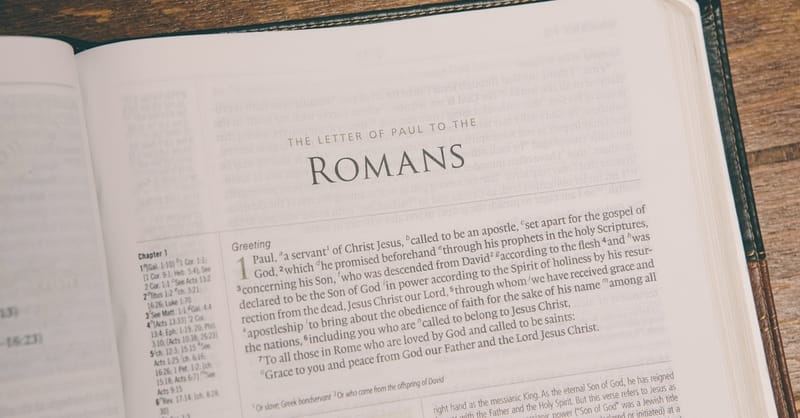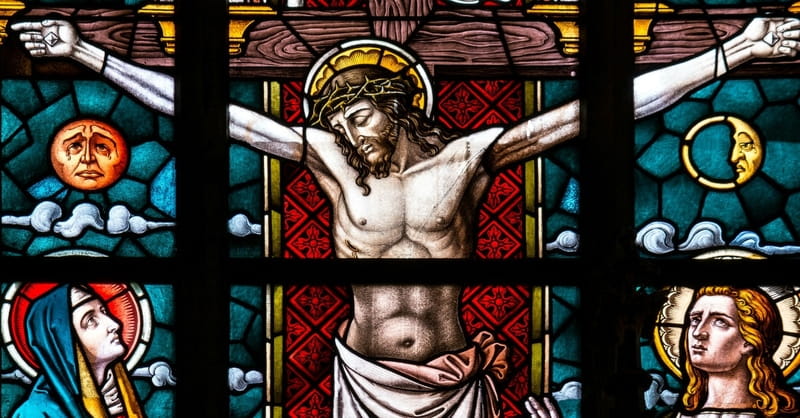
I have been teaching a weekly Bible study on the book of Romans to women in the Charlotte community. For the last several months, we have been plodding our way through the first three chapters as Paul has laid out his case that all mankind—Jew and Gentile—are sinful and rightly under the judgment of God. Paul finishes this section of his letter with this monumental statement: “For by works of the Law no human being will be justified in his sight” (Rom 3:20).
You can almost hear the gavel fall with a boom.
Photo Courtesy: Unsplash
But now...

Thankfully, Paul does not end his letter here. This morning, in the last installment of the women’s study for the Fall term (we will resume in the new year), we will move onto to 3:21 and following. There Paul utters two of the most beautiful words in all of Scripture, “But now….” These two little words provide a great sigh of relief for any sin-wracked soul wondering about his fate.
“But now” tells us that something has been done to solve the problem of our sins.
Photo Courtesy: Lightstock
Faith Alone

What is it that solves the problem of our sins? “A righteousness of (from) God has been manifested apart from the law… through faith in Jesus Christ” (3:21–22). Luther referred to these verses as “the center of the whole Bible.” Martin Lloyd Jones called it “the most important and crucial passage in the whole of Scripture.” Leon Morris said it is “possibly the most important single paragraph ever written.”
This passage is the basis for the great Reformation doctrine of sola fide—the idea that we are saved by faith alone and not by the works of the law.
Photo Courtesy: Unsplash
Faith as the Instrument

But Paul makes a critical clarification here. He makes it clear that the righteous status we so desperately need comes through faith (v.22), but it is not the faith itself that is the grounds of our justification. The grounds of our justification—the reason God can declare us sinners to be righteous—is because of the righteousness of Christ given to us. He can regard us as righteous because a righteous status has been granted to us.
Thus, faith is merely the instrument or the means by which that righteous status is attained.
Photo Courtesy: Lightstock
Faith as its Own Object

This is a critical reminder for Christians today. Whenever our world discusses religion, they will praise the merits of “faith” and laud people who possess it (think Oprah Winfrey). But notice the world never praises the merits of the object of that faith. It doesn’t matter what you believe in (after all, all religions are the same), what matters is that you are sincerely committed.
For our world, then, faith is its own object.
Saved through Faith

Contrast that to what Paul is saying in Rom 3:21–22. Paul is saying that you are not saved because of faith (as if it were meritorious in itself), but you are saved through and by faith in Christ. The object of the faith is what is definitive.
Our Lasting Hope

So, the Reformed doctrine of sola fide does not mean what the world might think it means. For the world, it simply means that all you need is faith. For the Reformers, it meant faith is the sole instrument by which you acquire a righteous status in Christ (and thus not by works).
For those who doubt their faith and find their faith to be weak, this is a great encouragement. Our hope is not in how strong our faith is, but in how strong and righteous our Savior is.
Editor's Note: This article was adapted from this blog post.
For more, visit Dr. Kruger's website: Canon Fodder.
Photo Courtesy: Thinkstock